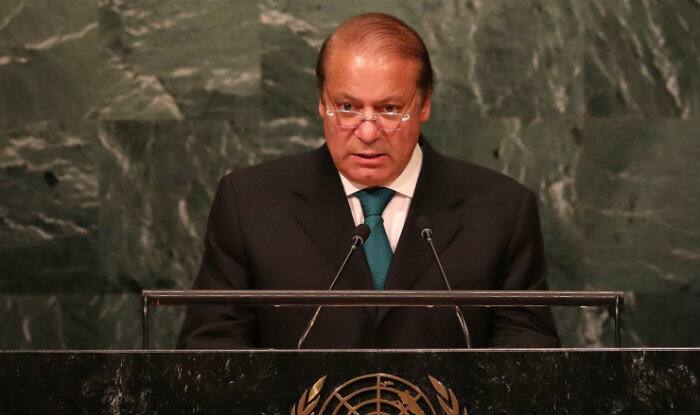
By clicking “Accept All Cookies”, you agree to the storing of cookies on your device to enhance site navigation, analyze site usage, and assist in our marketing efforts Cookies Policy.

New Delhi, September 21: In an address closely watched by people on both sides of the border, Pakistani Prime Minister Nawaz Sharif called for dialogue with India as a prerequisite for resolving the Kashmir dispute which will lead to peace between the two neighbours. After days of heated exchange of words from the political leadership of both India and Pakistan since the Uri terror attack, Sharif’s call for peace can be seen as a positive development. “Pakistan wants peace with India. I have gone the extra mile to achieve this, repeatedly offering a dialogue to address all outstanding issues,” he said in his address to the 71st UN General Assembly.
Political leaders on both sides of border were seen ramping up rhetoric, something which remains the Modi government’s forte. Over the past few weeks, Pakistan has been trying to draw the world’s attention to the human rights violation in Kashmir but has made little gains so far. Not surprisingly, Sharif reiterated his country’s “concern” for people of Kashmir while at the same time accusing India of oppressing Kashmiris. “A new generation of Kashmiris has risen spontaneously against India’s illegal occupation – demanding freedom from occupation,” he said. In his speech he also portrayed a Hizbul Mujahiddin Commander, who is considered a terrorist by many in India, as a hero. “Burhan Wani, the young leader murdered by Indian forces, has emerged as the symbol of the latest Kashmiri Intifada, a popular and peaceful freedom movement.”
(ALSO READ: China backs Pakistan’s position on Kashmir: Chinese Premier tells Nawaz Sharif on UNGA sidelines)
“This indigenous uprising of the Kashmiris has been met, as usual, with brutal repression by India’s occupation force of over half a million soldiers. Over a hundred Kashmiris have been killed…blinded by shotgun pellets and over six thousand unarmed civilians injured over the past two months,” he said while Baloch leaders were outside the UN headquarters in New York, protesting against Pakistani atrocities in Balochistan. One can expect Swaraj to bring it up during her turn to address world leaders on September 26.
The Pakistani Prime Minister also raised the issue of terrorism, which has also affected it several times over the years. “Tens of thousands of our citizens and thousands of our security personnel have been killed or injured in terrorist attacks,” Sharif said. He then went to make some bold claims: “Pakistan’s Zarb-e-Azb Operation is the largest, most robust and most successful anti-terrorism campaign anywhere in the world, deploying 200,000 of our security forces”. A day earlier, two US lawmakers introduced bill to designate Pakistan as a “state sponsor of terrorism”. In reference to that Sharif said that efforts to address terrorism “should be taken collectively and not unilaterally by the passage of any laws with extra-territorial application targeted against certain countries”.
In his meeting with US Secretary of State, Pakistan was asked to limit its nuclear stockpile giving the present arms race in South Asia. Sharif addressed those concerns saying it does not want to engage in an arms race but “cannot ignore our neighbor’s unprecedented arms build up and will take whatever measures are necessary to maintain credible deterrence”.
Expressing Islamabad’s willingness to talk, he said, “We are open to discussing all measures of restraint and responsibility with India, in any forum or format and without any conditions. We are ready for talks to agree on a bilateral nuclear test ban treaty”. Later in his speech, Sharif again hinted that his government would willingly engage in dialogue over all outstanding issues.
Sharif’s address could set the tone for External Affairs Minister Sushma Swaraj’s address to the General Assembly next week. Relations between the two countries are at a record low. It worsened since the Uri terror attack for which India has blamed Pakistan. Four militants attacked an army administrative base in Uri, Jammu and Kashmir, killing 18 soldiers and injuring around others. According to initial findings by investigating agencies, the terrorists were Pakistani nationals. They were heavily armed and specially equipped. Reports suggest that the fiyadeens or suicide squad was sent by Jaish-e-Mohammed, a terrorist outfit which known associations with the Pakistani government.
For breaking news and live news updates, like us on Facebook or follow us on Twitter and Instagram. Read more on Latest India News on India.com.